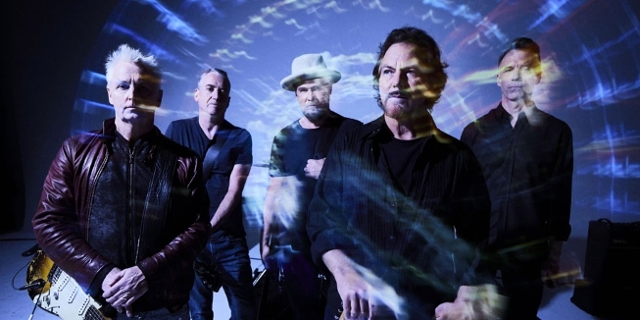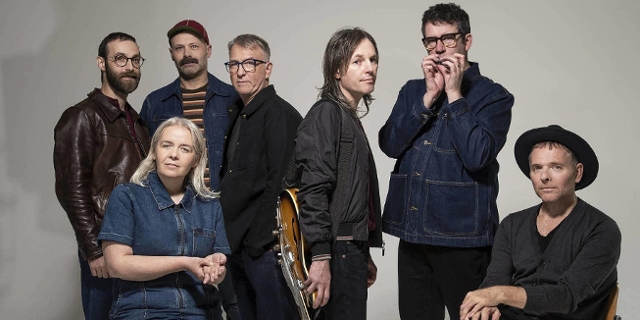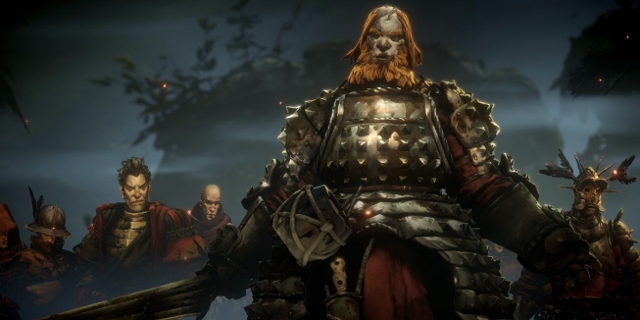„It is a complete, utter disaster for everybody“
The punk band Trigger Cut from Stuttgart should have embarked on a seven-date tour of the UK this week. Instead, they are back in Germany, having been stopped at the border and refused entry to the UK on a technicality.
They had been hoping to enter the UK on a visa-exemption route called “Permitted Paid Engagement” which allows artists to tour the UK for up to a month without a visa. But they hadn’t read the small print which said they couldn’t come if they had second jobs to pay the rent.
It’s not easy to be a creative musician, hold down a second job and understand the new byzantine immigration rules that have been created since Brexit. That’s why music agent Ian Smith has been trying to help such bands.
Based in the UK and here in Austria, he was saddened by Brexit which he sees a new barrier to important cross-border cultural pollination. So, he has made it his mission to help bands keep touring.

Ian Smith
CC: You reached out to Trigger Cut. How is the band coping with this situation?
Ian Smith: Well, they’re in shock, obviously, because they didn’t expect this at all. They were actually held up for around 90 minutes. They were put in a holding area. They had their passports taken off them. So it’s not a very pleasant experience at all.
CC: What seems sad about this situation is that it’s a small band, like many of the bands we celebrate here in Austria. Many such bands struggle to make a living through their music and yet these are the sort of musicians who can really benefit from small tours. And the whole music scene benefits from the diversity of these smaller bands who can’t afford to have legal experts in the team. They are surely bound to have difficulty with these Byzantine rules?
Exactly. The bigger bands, the bands who have agencies and agents will be in a far better position to potentially understand the rules and regulations. Even some of the agents don’t understand this and some of the managers, to be honest. So, what chance do the smaller bands have? Especially musicians who are just trying to make a living or even just trying to play without losing too much money. Because let’s face it, everybody at the beginning of their careers isn’t making much money. In fact, they may be losing money.
And then everyone loses out in both direction because that richness of cultural exchange is diminished and potentially lost. It’s a really bad situation, which is why I do a lot of this pro-bono advice work. I can’t help myself. It just irritates me too much.
CC: So how do you help bands who might run into such problems?
Well, there’s a very big thing that I did two and a half years ago, which you can find in Austria through Mica. I started a free-to-use post-Brexit touring guide for all creatives. This is musicians, dancers, photographers, whatever and it’s called UK E Arts work info with an associated YouTube channel. There’s lots of free advice on that channel. There are 3 minutes explainer videos on there about work permits or work visas in both directions. It’s all the really boring stuff, which is quite important if you want to get through the border safely.
CC: But it seems to me that it’s a shame that these bands have to go through all this boring legal stuff when perhaps the rules could just be simplified. What do you say to British politicians about this situation? It is not as though a young German band is going to take anyone’s job away in the UK by playing 3 weeks of concerts, is it?
Exactly. I mean, this is what we’ve been saying for years. Carry On Touring campaign started around about 18 months ago and we have a lot of cross-party support in the UK Parliament and in the House of Lords and they listen to us with great interest and with great support. The one thing I would say, obviously, is that we didn’t tend to get a lot of overt support from the Tory Party. Having said that, in discussions that I’ve had online with some Tory politicians and MPs, there is a desire to make things better and to make it work obviously, because otherwise it’s seen for what it is a complete, utter disaster for everybody and on both sides.
CC: I know you’ve got a foot in two cultures. I’m the same. This story made me feel sad for British music fans. Of course you will see the massive bands still coming to the UK, but, when I lived there it was the live music scene full of up-and-coming bands from all over Europe that made nightlife so exciting in Britain. So the Brits themselves are losing out by either turning people away or making it so complicated that young bands don’t want to come.
Exactly. And even bands are quite niche. For example, in Austria you have Attwenger, one of John Peel’s bands who he absolutely loved when he was still alive, a band I worked with occasionally. They are not a massive name over in the UK but they have actually toured there, as did Russkaja where they were still called that. And the younger, smaller bands learn their trade by touring.
Audiences should get to see and hear music from other places, which is vital not only for the absolute pleasure of listening to the music and seeing the performance but understanding of the cultures as well. If we don’t have that and we diminish that exchange. That’s a bad thing. We could do far better.
Obviously, the one thing I would say to everyone, please don’t stop trying to tour. Don’t let the situation stop you doing what you are passionate about doing and playing music or acting or whatever. There are ways around it. Take advice. Do what you can to get a clear picture. Certainly in Austria, Mica is a great resource. They are great.
Publiziert am 14.04.2023

















